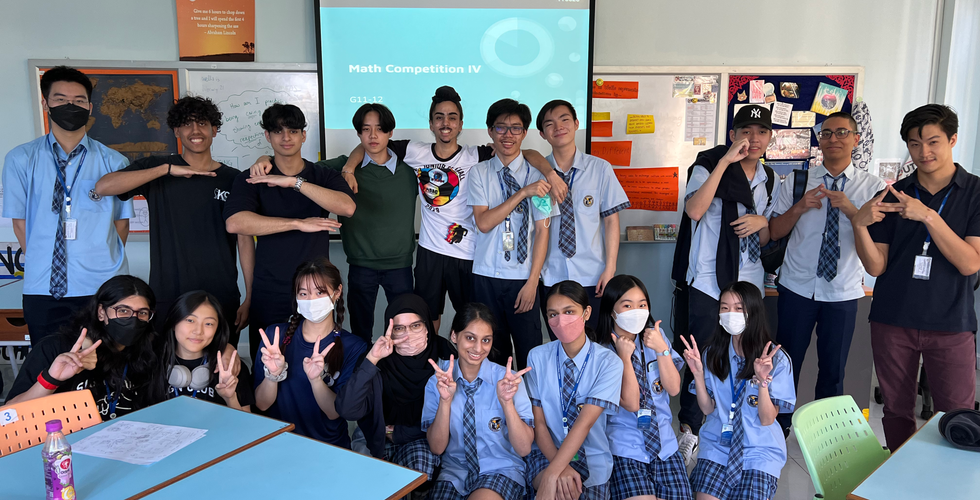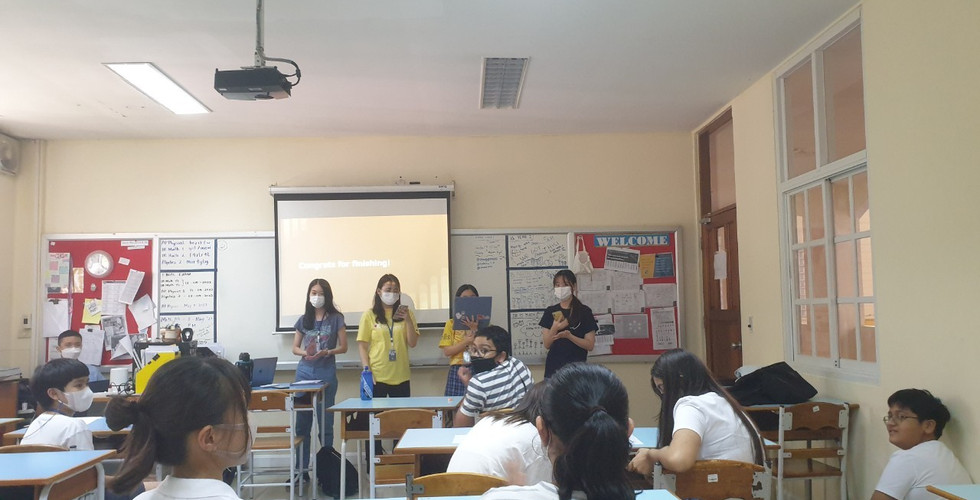Math Competition IV (C)
- Premyuda Sakkapannikon
- Nov 5, 2022
- 2 min read
Updated: Feb 17, 2023
2: Demonstrate that challenges have been undertaken, developing new skills in the process
3: Demonstrate how to initiate and plan a CAS experience
4: Show commitment to and perseverance in CAS experiences
5: Demonstrate the skills and recognise the benefits of working collaboratively
Risa, Seungyeon, and I dedicated a semester of Math Club meetings to plan the fourth Wells Math Competition. We aimed to introduce participants to novel types of math that would engage them in creative and critical thinking. Additionally, we wanted to open up the competition to middle school students.
To ensure fairness, we grouped participants by grade level in the initial rounds: grade 7-8, grade 9-10, and grade 11-12. The winners of these rounds would go on to participate in the final round against teachers. A significant challenge we faced was choosing the appropriate questions. There needed to be a balance between the difficulty and novelty of the questions. We did not want people with prior math ability to have a great advantage or be bored as a result of their familiarity with the questions. We also did not want the questions to be too hard or foreign that people become discouraged from attempting to solve them. Lastly, we hope that participating teachers, some of whom have not done math in years, would still gain satisfaction from taking part in the event. To fulfill these goals, we assigned Math Club members to create questions for math levels they were familiar with. We taught them the type of questions we were looking for, giving them guidelines as seen in the picture below. They took inspiration from questions seen in classes and from browsing creative questions online. In the process, the members were also exposed to new math.

On the logistics side of things, coordinating a 4-day event required a lot of planning, organization, and communication. While Seungyeon created a script and emceed, Risa and I were responsible for promoting the event, communicating with teachers, and acquiring classroom/auditorium space. We faced issues in scheduling the competition at the right time because there were other events going on, and technical issues on the days of the competition. In the end, we somehow improvised and resolved the problems.
Overall, the competition was a success. Many people participated. While some questions were not well-received (due to it being too hard or too easy), it ended on a good note because in the final round, it seemed both teachers and students were quite engaged in solving the questions.
Day 1 (grade 9-10 round on November 3)
Day 2 (grade 11-12 round on November 4)
Day 3 (grade 7-8 round on November 10)
Day 4 (final round on November 11)




















































Comments